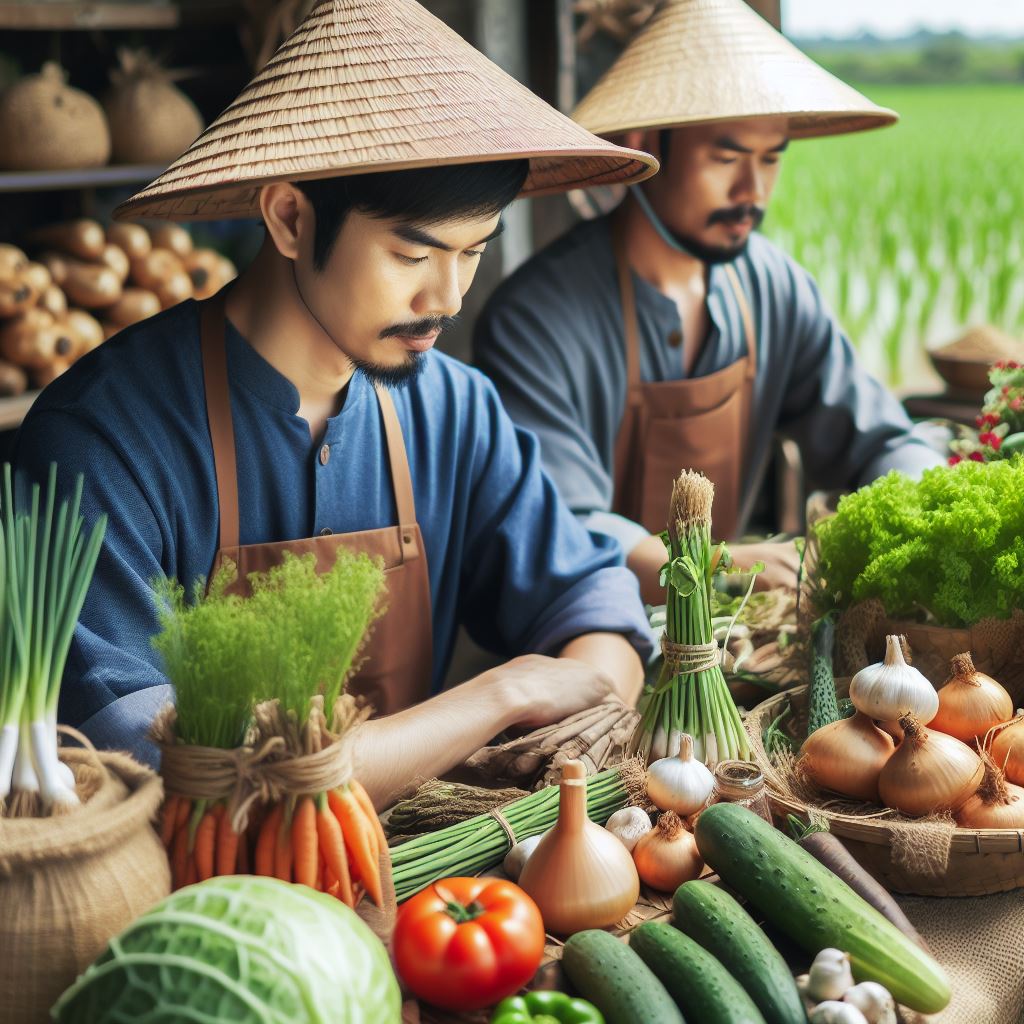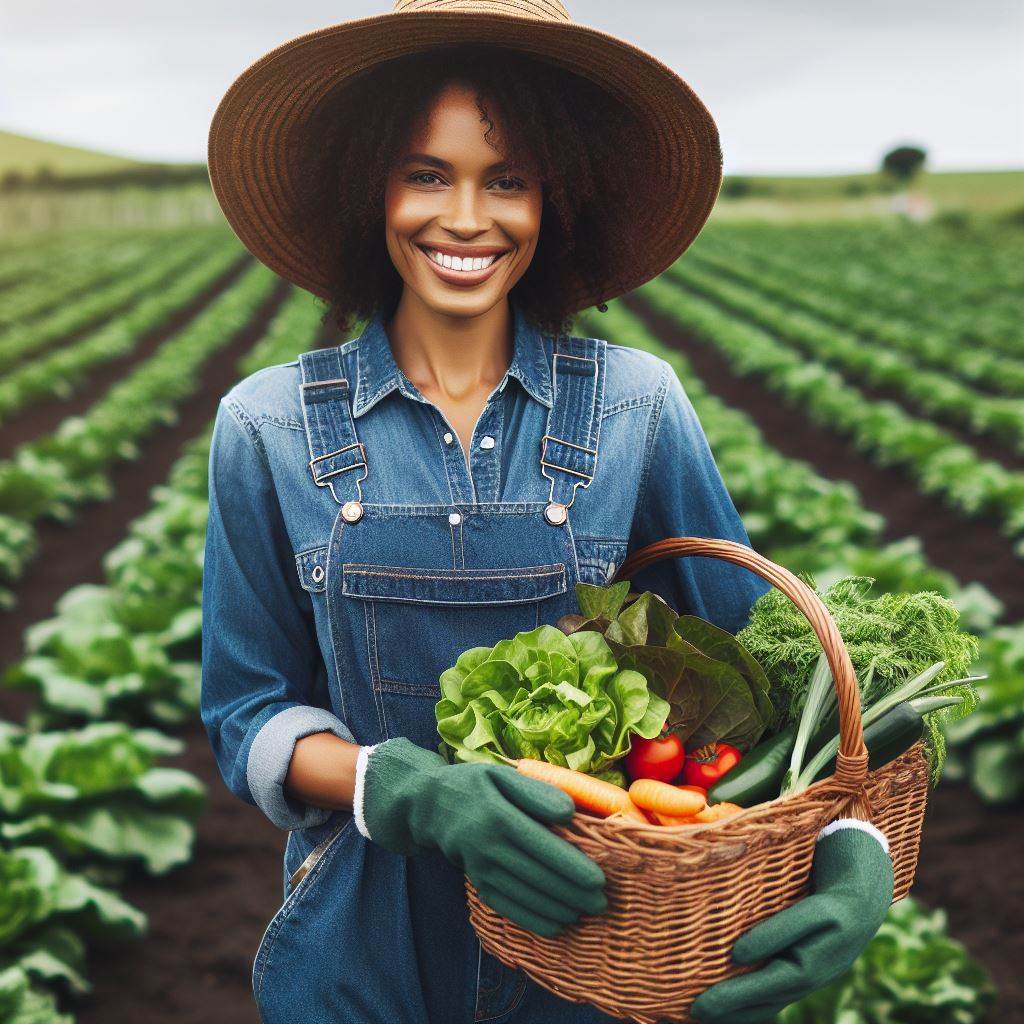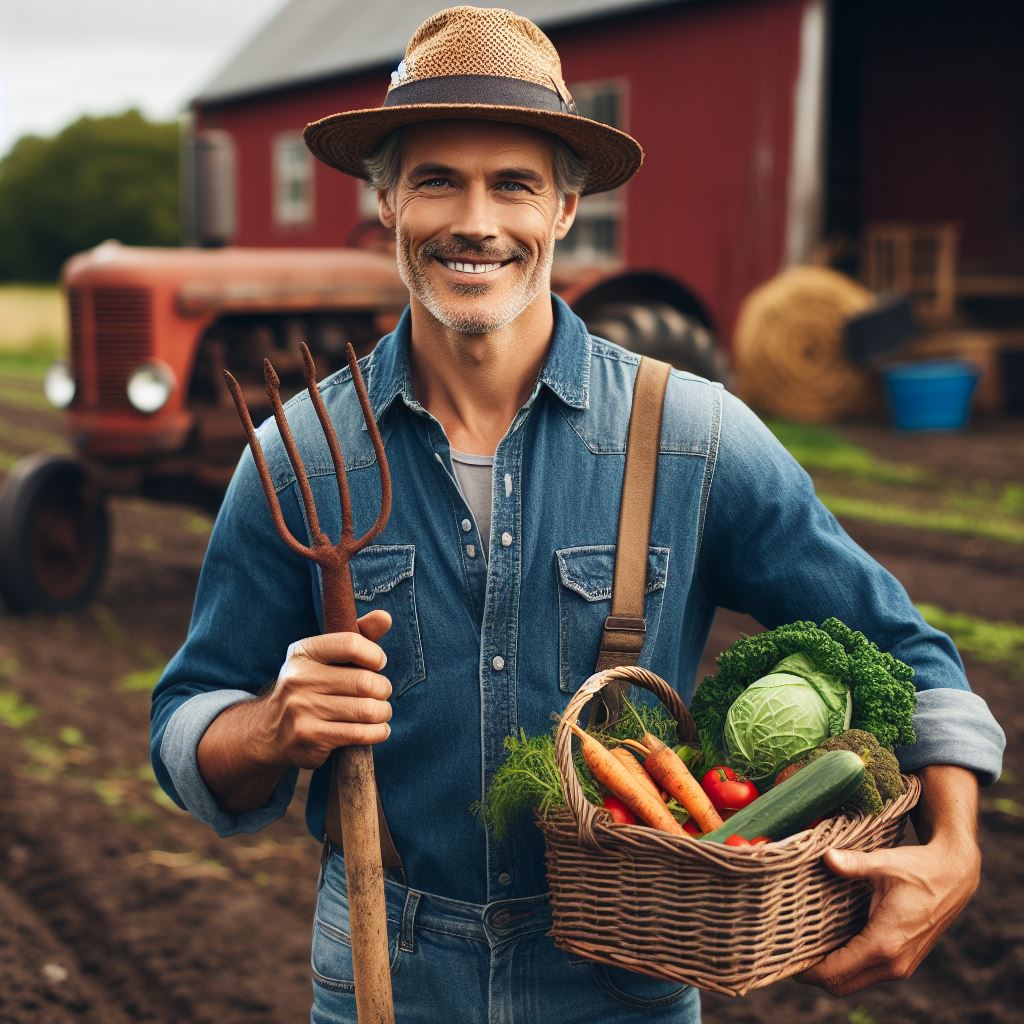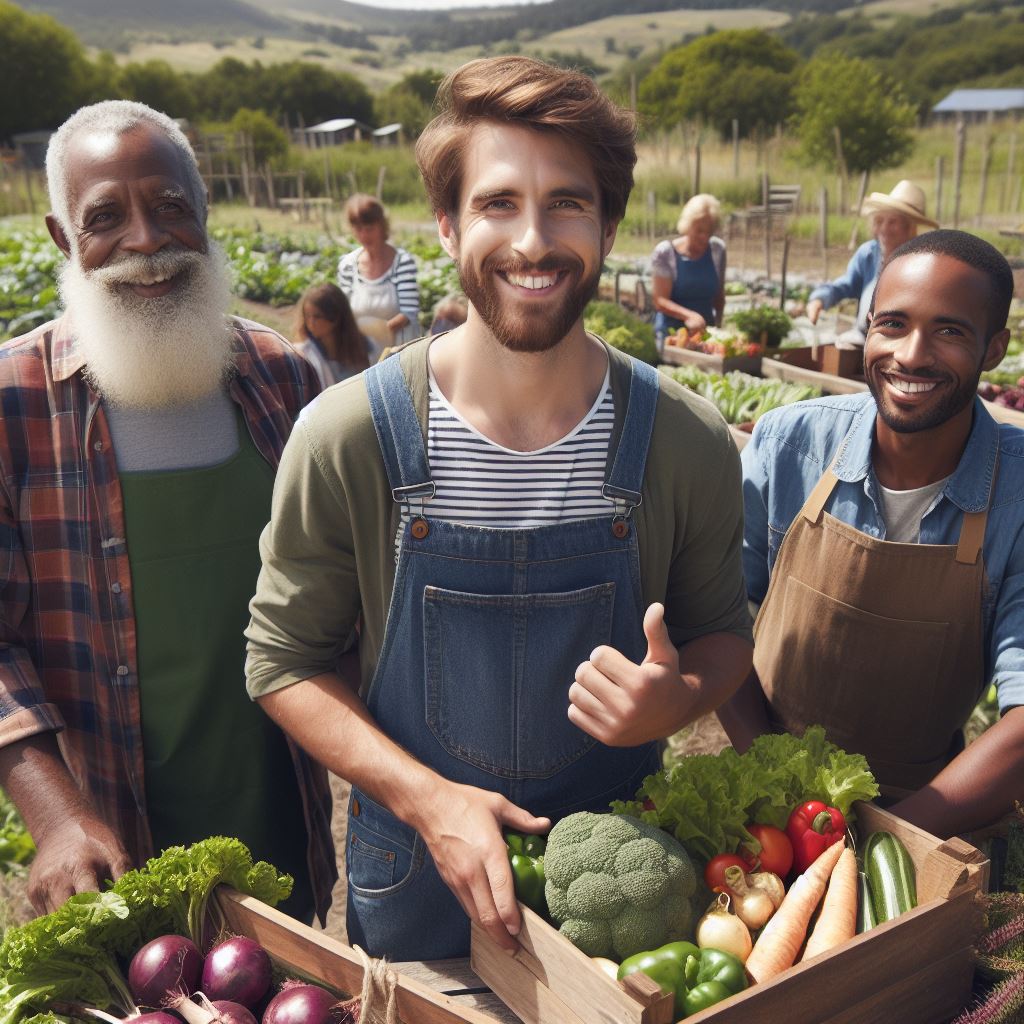Introduction
Workshops for farmers and chefs propel culinary innovation.
Collaboration between these two vital pillars fosters a dynamic culinary landscape.
In the bustling realm of gastronomy, farmers and chefs share an intrinsic bond that shapes the very essence of our dining experiences.
It’s not merely a transaction of raw ingredients; it’s a profound partnership that thrives on shared knowledge and mutual respect.
The synergy between farmers and chefs is the heartbeat of the culinary industry.
The fertile soil yields the bounty, and skilled chefs transform it into a symphony of flavors.
In the intricate dance of gastronomy, the farmer sows the seeds of possibility, and the chef orchestrates a masterpiece on the plate.
This relationship, often undervalued, is the cornerstone of culinary success.
These workshops, where farmers and chefs converge, are the crucible of creativity.
Understanding the importance of this alliance is paramount to appreciating the culinary marvels that grace our tables.
Benefits of Workshops for Farmers and Chefs
In the dynamic world of agriculture and culinary arts, workshops serve as vital platforms for fostering collaboration.
They bridge the gap between farmers and chefs, creating an environment that promotes shared understanding and sustainable practices.
Let’s delve into the advantages that these workshops bring to the forefront:
Enhanced Collaboration and Communication
Workshops break down barriers, encouraging farmers and chefs to communicate effectively.
By actively engaging in dialogue, both parties gain insights into the intricacies of each other’s worlds.
This collaboration fosters a sense of unity, breaking down silos that may exist between the farm and the kitchen.
Better Understanding of Needs and Challenges
By participating in joint workshops, farmers and chefs develop a profound understanding of the challenges faced by each other.
Farmers gain insights into the specific requirements of culinary professionals, such as desired crop varieties and seasonal availability.
On the flip side, chefs gain a deeper appreciation for the effort and dedication required in agriculture.
Promotion of Local Sourcing and Sustainable Practices
Workshops serve as a catalyst for promoting local sourcing and sustainability in the culinary field.
Both farmers and chefs explore ways to integrate locally produced ingredients into culinary creations, fostering a sense of community and reducing the carbon footprint associated with food production.
This emphasis on sustainability aligns with the growing demand for eco-friendly practices in the food industry.
In summary, workshops act as transformative platforms, cultivating collaboration, understanding, and sustainable practices in the realms of farming and culinary arts.
By actively participating in these events, farmers and chefs contribute to the creation of a more connected and resilient food system.
The advantages are clear: improved communication, better comprehension of challenges, and a commitment to local sourcing and sustainability.
As the agricultural and culinary worlds continue to evolve, the significance of such workshops becomes increasingly apparent.
They not only enhance the professional relationships between farmers and chefs but also play a crucial role in shaping the future of our food systems.
Read: CSA: Supporting Local Farms
Topics Covered in Farmers and Chefs Workshops
When attending Farmers and Chefs workshops, participants have the opportunity to explore a wide range of topics.
These workshops are designed to educate and inspire both farmers and chefs, helping them to improve their practices and collaborate for a more sustainable and inclusive food system.
The variety of topics that are typically covered in these workshops
1. Farm-to-table concepts and practices
One of the primary focuses of these workshops is to promote farm-to-table concepts and practices.
Participants learn about the importance of sourcing locally grown produce and supporting local farmers.
They also gain insights into the benefits of using seasonal ingredients in their menus, ensuring freshness and flavor.
2. Sustainable farming techniques
Farmers attending these workshops are exposed to sustainable farming techniques that prioritize environmental stewardship.
They learn about organic farming methods, regenerative agriculture, and other practices that minimize the use of chemicals and focus on soil health.
This knowledge helps them improve their farming practices while maintaining ecosystem balance.
3. Seasonal eating and menu planning
Chefs, on the other hand, benefit greatly from the workshops’ emphasis on seasonal eating and menu planning.
They learn about the advantages of using locally sourced, seasonal ingredients in their cooking, allowing them to create dishes that showcase the freshest produce available.
This approach not only enhances flavor but also supports local farmers.
Transform Your Agribusiness
Unlock your farm's potential with expert advice tailored to your needs. Get actionable steps that drive real results.
Get Started4. Culinary trends and innovations
Staying up-to-date with culinary trends and innovations is crucial for chefs in today’s competitive food industry.
Farmers and Chefs workshops provide a platform for chefs to learn about the latest trends, including new cooking techniques and innovative flavor combinations.
This knowledge helps chefs create unique and exciting dishes that meet the evolving tastes of their diners.
5. Food safety and quality control
Another essential topic covered in these workshops is food safety and quality control.
Both farmers and chefs learn about best practices for handling, storing, and preparing food to ensure the highest standards of hygiene and freshness.
By implementing these practices, participants can maintain the quality of their products and protect the health of consumers.
In conclusion, Farmers and Chefs workshops cover a diverse range of topics that are crucial for the success and sustainability of the food industry.
Through these workshops, farmers and chefs can collaborate, share knowledge, and implement practices that support local sourcing, sustainable farming, seasonal eating, culinary innovation, and food safety.
By continuously expanding their knowledge and skills, participants play a vital role in building a healthier, more ethical, and delicious food system for everyone.
Read: CSA Boxes: What to Expect
Guest Speakers and Experts
Guest speakers and experts play a crucial role in the workshops organized for farmers and chefs.
These individuals bring a wealth of knowledge and experience to the table, enriching the learning experience for all participants.
The involvement of guest speakers and experts in these workshops
1. Prominent farmers sharing their experiences and insights
One of the highlights of these workshops is the presence of successful farmers who have achieved excellence in their field.
These farmers not only provide valuable insights into the challenges and opportunities in farming but also share their personal experiences.
Participants get an opportunity to learn from their successes and failures, gaining practical knowledge that they can implement in their own farming practices.
2. Renowned chefs discussing culinary techniques and trends
These workshops also invite renowned chefs who specialize in farm-to-table cuisine.
These chefs bring their expertise in culinary techniques and trends, providing valuable guidance to farmers and chefs alike.
They give insights into the demands of the culinary industry and how farmers can align their produce with evolving consumer preferences.
By understanding the needs of chefs, farmers can grow crops that meet specific culinary requirements, ultimately benefiting both parties.
3. Agricultural experts providing guidance on sustainable farming practices
Sustainability is a crucial aspect of modern farming, and agricultural experts play a vital role in promoting sustainable practices.
These experts provide guidance on various aspects of sustainable farming, including soil health, water conservation, crop rotation, and organic farming.
By incorporating these practices, farmers can reduce their environmental impact and improve the long-term viability of their farms.
The guidance provided by agricultural experts is invaluable in ensuring that farmers adopt sustainable and responsible farming practices.
The involvement of guest speakers and experts in these workshops greatly enhances the learning experience for the participants.
They provide a unique perspective and a deep understanding of the challenges and opportunities in the farming and culinary sectors.
By sharing their experiences, insights, and guidance, these individuals empower farmers and chefs to make informed decisions and embrace sustainable practices.
Moreover, the interaction between farmers, chefs, and experts fosters collaboration and knowledge-sharing.
Farmers gain an understanding of the specific requirements of chefs, enabling them to better cater to their needs.
On the other hand, chefs can appreciate the efforts and dedication of farmers, leading to a stronger bond between the two professions.
This collaboration ultimately benefits the entire food ecosystem, resulting in healthier, more sustainable, and delicious food for consumers.
In conclusion, the involvement of guest speakers and experts in workshops for farmers and chefs is instrumental in promoting knowledge exchange, fostering collaboration, and driving sustainable practices.
The insights and experiences shared by prominent farmers, renowned chefs, and agricultural experts empower participants to enhance their farming techniques, meet culinary demands, and contribute to a more sustainable food system.
These workshops serve as a platform where the expertise of multiple stakeholders converge, creating a powerful force for positive change in the farming and culinary industries.
Read: Farm Fresh: CSA Explained

Format and Structure of Workshops
Panel discussions with farmers, chefs, and industry experts
Panel discussions are a common format used in farmers and chefs workshops where experts share insights and knowledge.
These discussions bring together farmers, chefs, and industry experts to discuss relevant topics.
Through the panel format, participants gain valuable information from different perspectives and experiences.
Farmers can learn about the needs and preferences of chefs, while chefs can understand the challenges faced by farmers.
Industry experts provide additional insights and guidance on sustainable practices, market trends, and other relevant topics.
Hands-on cooking demonstrations and tastings
Hands-on cooking demonstrations and tastings are an interactive and engaging format used in farmers and chefs workshops.
During these sessions, chefs showcase their culinary skills and teach participants how to prepare delicious dishes using local ingredients.
Farmers can learn about the versatility and potential of their produce, while chefs can explore new ingredients and techniques.
Participants get the opportunity to taste the dishes prepared and appreciate the flavors created using fresh and local ingredients.
This format allows for direct interaction and learning through action, enhancing the understanding of the farm-to-table concept.
Interactive sessions for networking and idea exchange
Interactive sessions are designed to foster networking and idea exchange among participants in farmers and chefs workshops.
These sessions provide a platform for farmers, chefs, and other stakeholders to connect, share experiences, and build relationships.
Showcase Your Farming Business
Publish your professional farming services profile on our blog for a one-time fee of $200 and reach a dedicated audience of farmers and agribusiness owners.
Publish Your ProfileParticipants can discuss challenges, successes, and innovative ideas related to local sourcing, sustainability, and food production.
Through networking and idea exchange, participants can explore collaboration opportunities and learn from each other’s experiences.
These sessions often involve discussions, group activities, and brainstorming exercises to encourage active participation.
Collaborative sessions to develop local sourcing strategies
Collaborative sessions are a crucial component of farmers and chefs workshops, aiming to develop effective local sourcing strategies.
During these sessions, farmers, chefs, and other food industry professionals work together to identify opportunities and challenges.
Participants collaborate to develop strategies for sourcing local ingredients, establishing supply chains, and promoting sustainable practices.
These sessions may involve group discussions, case studies, and interactive exercises to facilitate idea generation and problem-solving.
The collaborative format encourages participants to think collectively and find innovative solutions to strengthen local food systems.
In conclusion, farmers and chefs workshops utilize various formats and structures to facilitate learning, networking, and collaboration.
Panel discussions, hands-on cooking demonstrations, interactive sessions, and collaborative sessions contribute to a comprehensive learning experience.
These workshops play a vital role in promoting sustainable practices, supporting local farmers, and fostering a farm-to-table culture.
Read: Local Food Trends: Events You Can’t Miss
Success Stories and Impact
These workshops have had a tremendous impact on both the culinary industry and sustainable farming practices.
By bringing farmers and chefs together, they have created a symbiotic relationship that benefits both parties and the environment.
The stories of success are ample, demonstrating the transformative power these workshops have.
Share success stories of farmers and chefs who have benefited from these workshops
Firstly, the direct sourcing of ingredients from local farms by chefs has become more common.
Previously, chefs relied heavily on big distributors, which often led to ingredients traveling long distances, losing freshness and flavor.
However, by attending farmers and chefs workshops, chefs have learned about the benefits of sourcing locally.
They have been motivated to establish direct relationships with farmers, allowing them to have access to the freshest ingredients possible.
This has not only improved the quality of their dishes but also increased their connection with their local community and its food production.
Secondly, the workshops have provided farmers with new opportunities in the culinary industry.
Collaborating with chefs allows them to showcase their products in high-end restaurants, increasing their visibility and sales.
Farmers have gained exposure to a new customer base and are now able to explore innovative ways of presenting their produce.
This has given them a chance to diversify their offerings and reach previously untapped markets.
As a result, their businesses have grown, making them more financially stable and sustainable.
The overall impact of these workshops on the culinary industry and sustainable farming practices
Moreover, the workshops play a significant role in promoting sustainable farming practices.
By connecting farmers and chefs, they foster a deeper understanding of the importance of responsible food production.
Chefs learn about the challenges facing farmers and the impact of their buying choices.
As a result, they are more likely to support sustainable farming practices, such as organic farming or regenerative agriculture.
This, in turn, encourages farmers to adopt environmentally friendly methods and reduce the use of harmful chemicals and pesticides.
The workshops facilitate the exchange of knowledge and best practices, creating a ripple effect that contributes to a more sustainable food system.
In conclusion, the success stories emerging from farmers and chefs workshops demonstrate the tangible and positive impact they have on the culinary industry and sustainable farming practices.
Chefs sourcing directly from local farms and farmers reaching new markets through collaborations are clear examples of the benefits these workshops provide.
Additionally, the overall impact extends to promoting responsible food production and fostering a sustainable food system.
These workshops are a powerful tool in transforming the way food is sourced and produced, benefiting all stakeholders involved.
Conclusion
Significance of Farmers and Chefs Workshops
Farmers and chefs workshops forge a vital bridge between the fields and kitchens, enriching both communities.
These collaborative sessions empower farmers to understand chefs’ culinary needs while chefs gain insights into sustainable farming practices.
Such workshops highlight the symbiotic relationship between farmers and chefs, showcasing the transformative impact on local food systems.
The farm-to-table movement gains momentum as farmers and chefs collaboratively explore ways to enhance the quality and variety of locally sourced ingredients.
Through hands-on experiences, farmers learn to tailor their produce to meet the discerning tastes of chefs.
This not only elevates the culinary landscape but also promotes biodiversity and sustainable farming practices.
Workshops also serve as platforms for farmers and chefs to exchange expertise.
Farmers share their deep knowledge of seasonal produce, enabling chefs to create menus that celebrate the diversity of local flavors.
In return, chefs provide valuable feedback, guiding farmers on the specific requirements of their culinary craft.
The significance of these workshops extends beyond the plate, fostering a sense of community and mutual respect.
Farmers and chefs discover common ground, realizing that their collaboration is a linchpin for a resilient and thriving local food ecosystem.
Importance of Continued Collaboration and Knowledge Exchange
Continued collaboration between farmers and chefs is imperative for the evolution of our food culture.
This synergy ensures a sustainable and vibrant future where locally sourced, fresh ingredients become the cornerstone of every culinary masterpiece.
The exchange of knowledge is a catalyst for innovation in both farming and culinary arts.
Farmers, armed with insights from chefs, can adapt and diversify their crops to meet evolving culinary trends.
Chefs, in turn, can experiment with unique ingredients, pushing the boundaries of their craft.
Sustaining this collaboration is essential for addressing challenges faced by both parties, such as climate change and market demands.
Together, farmers and chefs can develop strategies to navigate these issues, ensuring the continued availability of high-quality, locally sourced produce.
Call to Action: Participate or Support
As we conclude, we invite you to actively engage in or support farmers and chefs workshops.
Your participation contributes to the flourishing local food system and the dynamic culinary community.
Consider attending workshops in your area to witness the magic of collaboration firsthand.
By doing so, you not only support local farmers and chefs but also become an advocate for sustainable and ethical food practices.
For those unable to attend, supporting these initiatives financially or through volunteering can make a meaningful impact.
Your involvement fortifies the bond between farmers and chefs, fostering a resilient and thriving local food ecosystem for generations to come.
Join the movement, and let’s cultivate a future where our plates are not just filled but tell a story of collaboration, sustainability, and shared passion.




